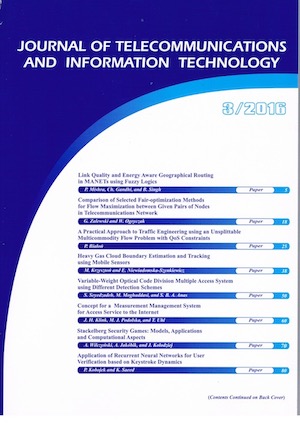Introduction
Game theory is the formal, mathematical methodology for analyzing interactions between intelligent players: people, corporations, software agents, or making decisions robots. The theory is useful for solving problems in many disciplines, from economics, business, and law, public policy to telecommunication. Game theory provides the tools for determining optimal behavior in competitive environments. Formally, a game refers to all the situations involving two or more intelligent individuals making rational decisions. The players are making decisions consistently to obtain the assumed target. The player is considered intelligent, if he knows the game rules and can make decisions based on his knowledge. The basic examples of game theoretical modeling include the simulations of the competitive processes in economics, political science, psychology, or biology. The players are interest groups, politicians, or competing animal species. Computer science uses game theory during modeling multiagent systems, online algorithms or processes in computer networks…
Conclusions
Security Stackelberg games presented in this paper are very promising tools for modeling the data and user managements, as well as supporting complex decision processes in competitive computational environments with possible conflicts of interests of the users and system administrators and service and resource providers. All surveyed models were based on the realistic characteristics of the systems, namely existing limitations in access to the resources, uncertainty about follower types, non-optimal behavior of the players or limited knowledge of the opponents’ actions and strategies. Increasing the efficiency of the game model is strictly connected with the increase of the calculated number of parameters in the game and equations to solve in the game optimization models, which makes of course the all implementation of such models more complex…

